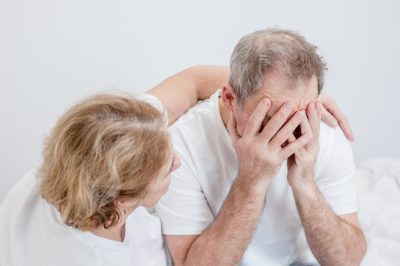Indulging in sex and sexually related activities is part of our biological configuration as humans. So, it is normal to desire to be touched in some erotic ways which go a long way in reinforcing intimacy between sexual partners. However, what constitutes one’s sexual perception and experience is largely determined by the level of emotional satisfaction. That is what happens during pre-sex, sex, and post-sex encounters.
Now, if you had an active sexual life and all of a sudden all you feel is a void whenever you try to engage in sex or any sexually related activities, something might be wrong. This little piece of write-up is posed to enlighten you on why you feel what you feel and how you can go beyond this crucial moment without being negatively affected in the short or long run.
What are Sexual Desire Disorders?
Just like your job could get tiring and monotonous because you have to repeat the same set of activities on a routine basis daily, so also, your longings and desire for sex may plummet. Funny enough, it is normal for this to occur at some point in time largely owing to life’s stress and pressures that you have to go through at times – those situations that just totally put you off the mood. However, when it goes beyond this to the extent that it begins to change your sexual perceptions, drive, and behavior, there is no doubt that something is wrong!
Briefly, sexual desire disorders refer to a mental condition where a person feels no desire to indulge in sex or any sexually related activities over an elongated period of time. As said earlier, it is normal if it happens occasionally may be because one is aging, stressed out, and all but what makes it a condition that might require some urgent attention is if it begins to affect you or your relationships negatively.
The major two forms of sexual desire disorders are Hypoactive Sexual Desire Disorder (HSDD) and Sexual Aversion Disorder (SAD). The former happens when there is the absence of sexual or erotic thoughts and desire for sexual engagements in one and these symptoms must have persisted for not less than six months. On the other hand, the latter entails the total avoidance of genital contacts with a sexual partner which has also persisted over a specified period. In plain terms, it is the unwillingness to participate in any form of sexual activity or developing strong hatred or aversion for sex and sex-related activities.
Causes of Sexual Desire Disorders
Many factors can be responsible for this condition. Some of which include:
- Traumatic experiences
A painful intercourse experience can totally alter an individual’s perspective about sex. This is where such begin to see sex as painful and inhumane. Where there is an incidence of rape, molestation, it is worse as victims tend to develop a strong aversion for sex and other sexual activities.
- Performance anxiety

For most men, what reinforces their ego as men are their ability to last long during sexual intercourse. Where a man suffers from premature ejaculation and is met with insults and degradation from a non-understanding spouse, he is prone to sexual desire disorders.
- Anti-depressant drugs
One could suffer sexual desire disorder when on certain medications that tend to reduce one’s libido. As a matter of fact, anti-depressants which contain Serotonin Reuptake Inhibitors (SSRI) largely affects one’s sex life as it reduces interest in sex. Such drugs as citalopram, sertraline, and fluvoxamine are apt examples.
- Stress, anxiety, and depression
The state of one’s mental health has a lot to do with how sexually vibrant one is. When a person goes through difficult times, it’s just normal that one might want to avoid sexual activities.
- Age

As one grows older, the tendency that interest in sexual activities will decline is high. This could also be a factor for sexual desire disorder.
Dealing with sexual desire disorders
As a matter of fact, sexual desire disorders can be treated. So, there’s no need to panic. Treatment can take either of two forms which are psychotherapy and medication or a combination of both for severe cases of sexual desire disorder. The root of the problem actually determines what would be done to solve the problem. Where sexual desire disorders are a result of traumatic experiences, emotional therapies can be adopted. Even, musical therapy has been used towards this end; where it is as a result of aging, certain medications can be prescribed to boost sexual performance; and where anti-depressants are known to cause sexual desire disorders, it’s reasonable to seek professional advice and not self-medicate. Ultimately, go talk to your doctor about your condition.



